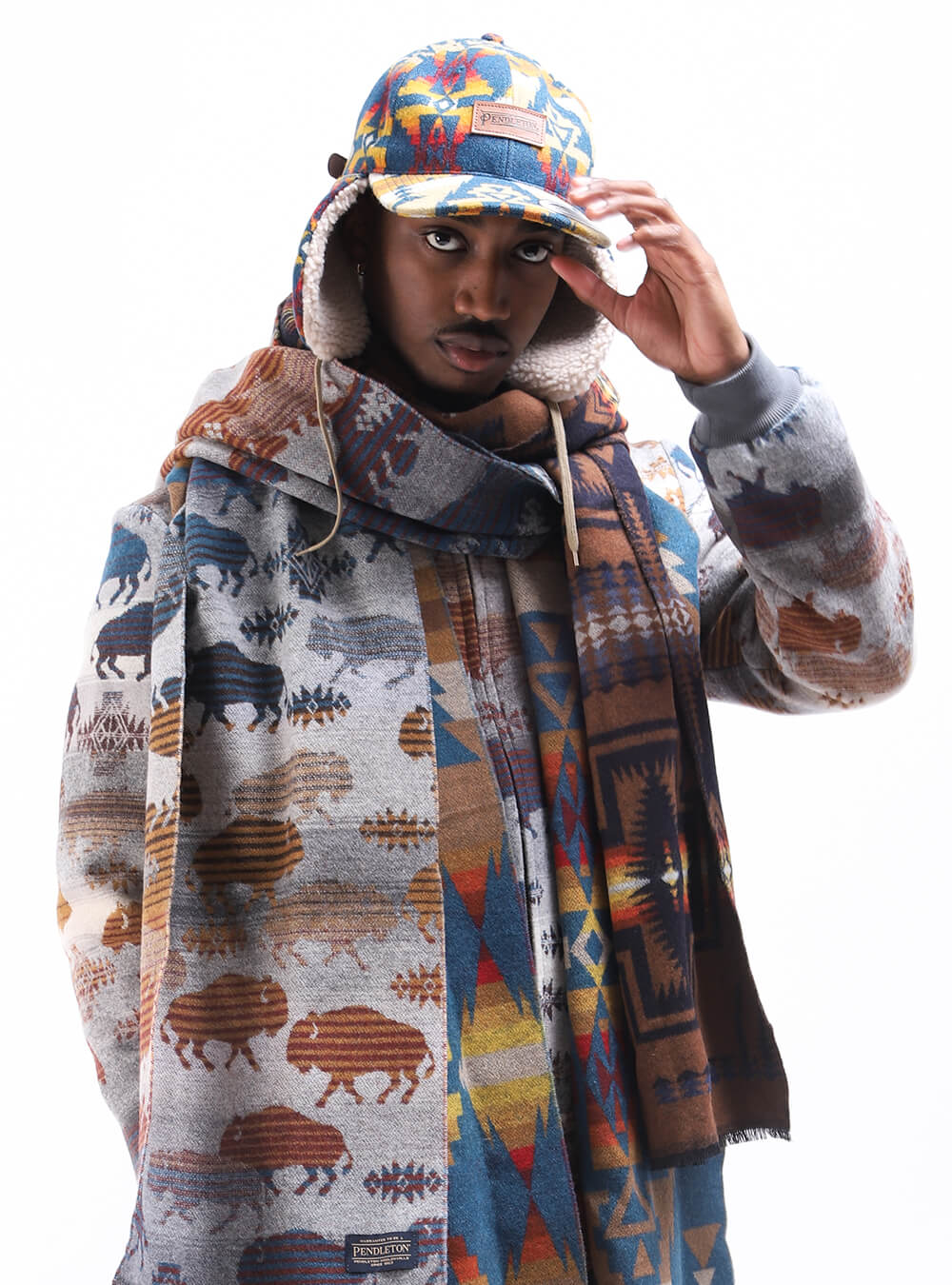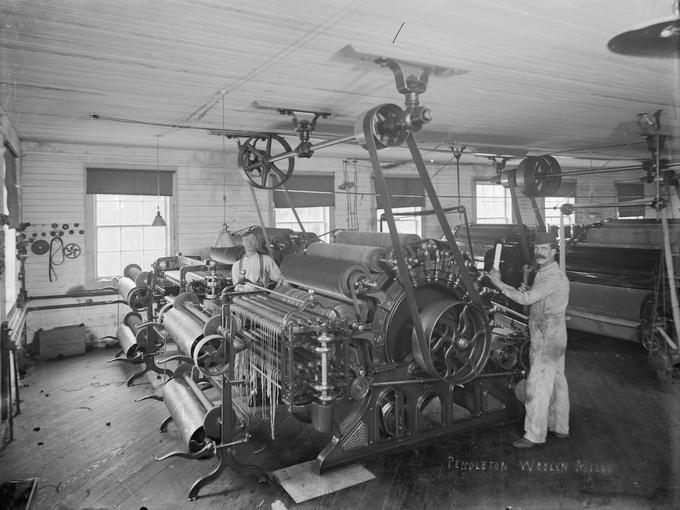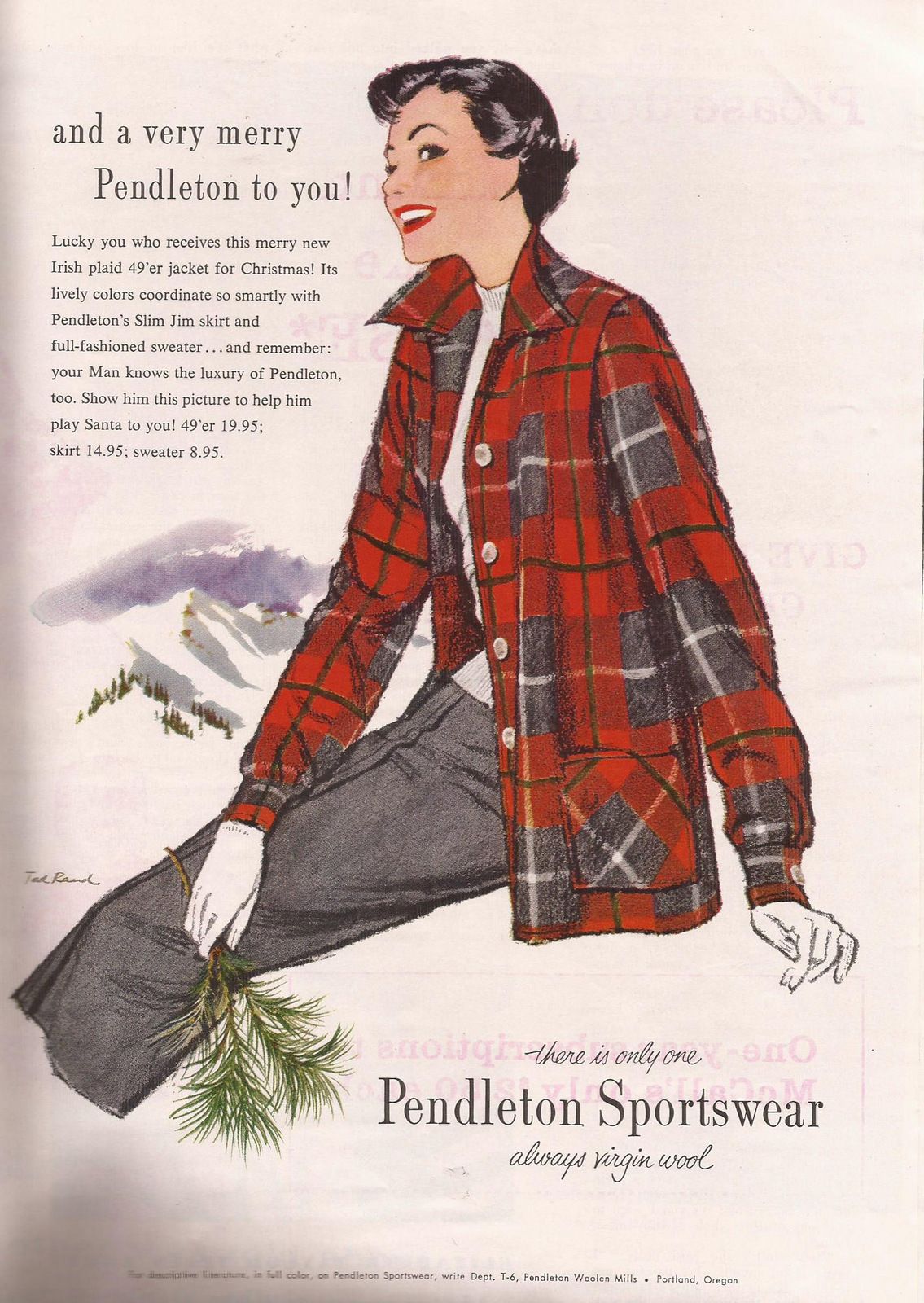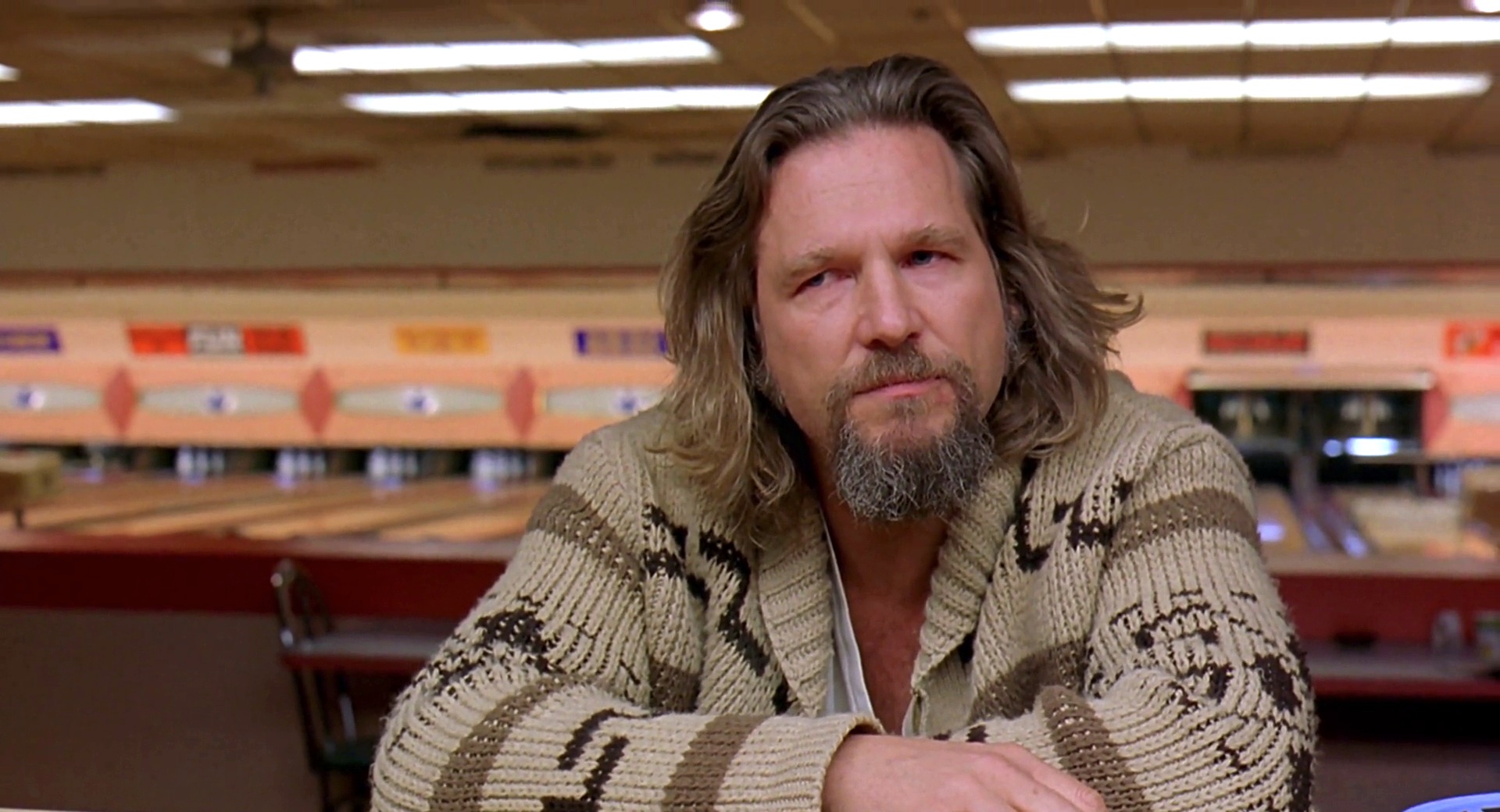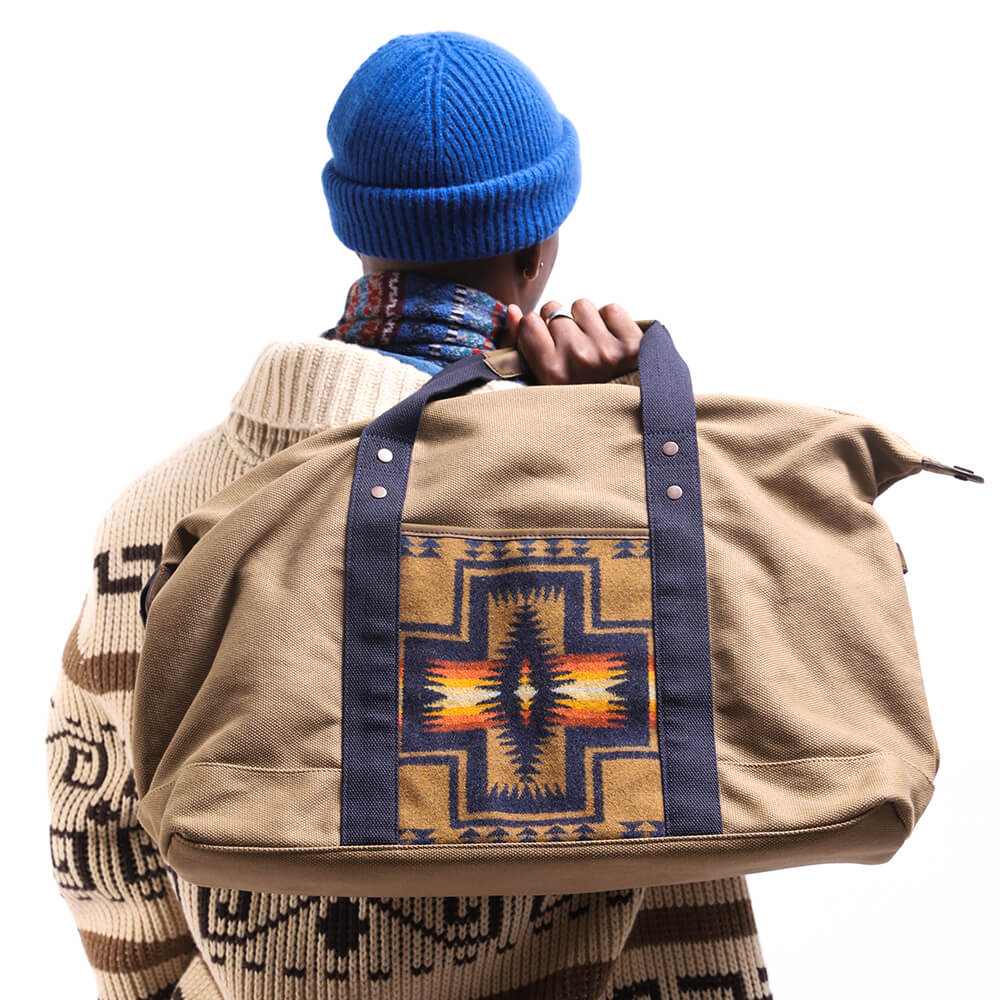Oregon in the western United States. A coastal state along the Pacific, wedged between the ocean and the mountains. It’s here in Portland that one of the last woolen mills in the USA thrives. Pendleton Woolen Mills.
But more than a woolen mill, Pendleton is what we call a vertically integrated company. Behind the somewhat barbaric name is a simple principle. The manufacturing plant is both its own wool supplier and its own communications network. A sort of Gustavo Fringe of wool if you will.
Let’s take a look back at the label’s history on the occasion of its arrival at Graduate!
19th century, the early days of Pendleton Woolen Mills.
Thomas Lister Kay, a weaver specializing in tweed, flannel, and wool, emigrated from England to the East Coast of the United States. From there, obviously not tired enough of his journey, he decides to make a transcontinental trek that will take him to Oregon. We are in 1863, and is founded the Thomas Kay Woolen Mill in Salem (nothing to do with the Salem of “witches,” the latter is in Massachusetts).
Some years later, his daughter Martha Ann marries a certain C. P. Bishop, a retail merchant of his own. As you can imagine, Thomas Kay’s expertise in wool weaving, and C. P. Bishop’s business acumen will take the modest family business to the next level.
Still a few years later, in 1909 to be exact, the three children of husband and wife team Martha Ann Kay and C.P. Bishop relaunched Pendleton Woolen Mill. A modest mill, established in 1893, that had more lows than highs. The opportunity was also to be closer to eastern Oregon, more remote than Salem, but also right next to the sheep herds of the region. The result was a substantial saving, and the beginnings of that famous “vertical integration.”
In addition to this proximity to the herds, the Bishops will also benefit from the proximity to Native American tribes, particularly the Nez-Percés. With the help of designer Joe Rawnsley, who had learned the clothing customs of the natives, Pendleton Woolen Mills quickly specialized in the manufacture of blankets with Native American motifs. The quality of Pendleton’s products was taken up by the tribes of the Northwest. Thus was born the Pendleton Woolen Mills that we know today.
The Modern Era of Pendleton Woolen Mills
Over the decades, the family-owned company has grown well, but has remained family-friendly! A men’s sports line was created, still in wool, but with bright colors, unlike the sad shirts of the time. The Second World War concentrated their activity on the production of uniforms for the army, but from 1949 another sports range was born, but dedicated to women (the ’49er jacket was an undeniable success). And in 1972 the company launched a spring-summer range, again a success.
In 1960, a nice twist of fate would also contribute to the brand’s popularity. A young pop group by the name of the “Pendletones,” in reference to the label’s flagship shirt, formed. And this young group changes its name a few years later, without denying their first inspirations, to be called from now on “The Beach Boys”. A nice publicity. (Listen to The Beach Boys!)
Finally, the last piece to the edifice, in the ’80s the label develops its offer through different stores of its own. In addition to this, a “direct to consumers” catalog and an e-commerce platform were added in the ’90s. Today, the brand is managed by the fifth generation of Thomas Kay’s heirs, has 41 physical stores and sells internationally products designed from A to Z in the northwestern United States. A model of success, integrity and craftsmanship for over 150 years.
The New Pendleton Clothing FW21 Collection
Let’s start with one of the most famous pieces, the Westerley Cardigan. First produced in 1972, Pendleton’s cardigan takes its inspiration from the handmade knits of the Cowichan tribe, originally from Vancouver Island. A thick, warm and comfortable lambswool piece with a typical Native American design. But, if it is so famous, it is especially thanks to its use in the movie The Big Lebowski! And yes, it is indeed one of the fetish pieces of the “Dude” Jeff Bridges throughout the film.
We’ll also mention the “Prairie” jacket with jacquard patterns in homage to the North American Great Plains buffalo. 100% virgin wool is a must-have of the label. Pendleton’s FW21 season also includes accessories, notably a travel bag for 48-hour trips. A weekender made from a thick and solid canvas 100% cotton. There’s also a 100% wool jacquard pattern with Native American influences, as well as leather trim.
Let’s also mention the beautiful scarves, made in Italy, soft, warm and in keeping with the spirit of the American label. The spirit of the Great Plains, of the American West, of the native peoples. The spirit of transmission and art.

